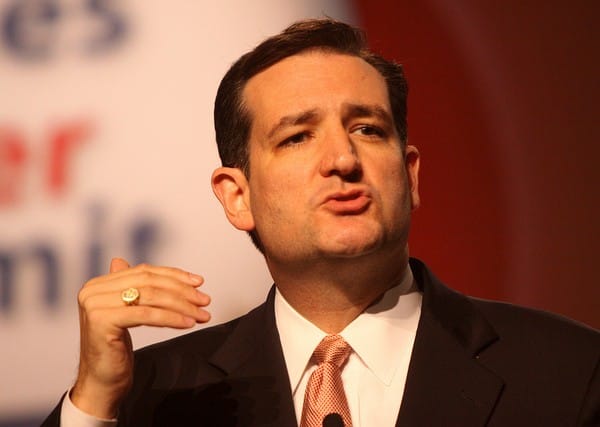On Immigration Reform Liberty Movement Shows Disagreements

(Credit: Gage Skidmore)

Along with gun control, immigration reform has been among the more divisive issues in Washington and within the Republican Party.
Within the GOP is the so-called liberty movement. Distinct from the historical conservative movement that arose during the Cold War, the liberty movement has been willing to break with the party leadership and strike out its own message. Included within this loose coalition are US Senators Rand Paul, Mike Lee, Ted Cruz, and US Reps. Justin Amash and Thomas Massie.
Typically united when it comes to civil liberties and reining in executive power, opinions from some in this coalition have differed over the question of 11 million undocumented people living within the US.
Part of the proposed solution to the illegal immigrant controversy is the de facto amnestying of 11 million through a 13-year path to citizenship. Also at issue is whether the legalization of so many who may rely on government assistance will benefit a political party that markets itself as wanting to cut government spending.
One of the more prominent faces of the movement, Paul has previously hinted that he might support amnesty. In a recent speech to California Republicans, Paul also chastised his party's behavior and rhetoric on immigration by saying, "Latinos will come to the GOP when we treat them with dignity."
However, with the excision of an amendment he introduced, Paul is now withdrawing his support from the Senate version of the immigration reform bill. On CNN's Sunday morning show, "State of the Union," the Senator said, "Without some congressional authority and without border security first, I can't support the final bill."
Texas US Senator Ted Cruz, on the other hand, has been a consistent opponent of amnesty as a part of immigration reform while also arguing for improved border security. The son of a Cuban immigrant, Cruz also opposes the current immigration bill for essentially bypassing the current legal immigration system.
Thomas Massie, a Kentucky Republican, echoed many of the same sentiments, but also hinted that deportation of millions is unfeasible:
"There are three things I require in an immigration bill to vote for it. We need border security, we need to take away welfare incentives for them to come here, and we need to stop rewarding people for breaking the law. But, I don't think it is possible to send 12 million people back, so we have to do something with them."
Georgia US Rep. Paul Broun, who has taken on the cause of auditing the Federal Reserve, has also issued strong statements against current reform efforts. The Georgia Republican has insisted that any immigration bill "must make English the official language of the country."
Another rising figure within the party, although not associated with the liberty movement, is Florida US Senator Marco Rubio. As one of the so-called Gang of 8 leading the immigration reform process in the Senate, Rubio has been popular with tea party groups, but may be risking political backlash for not only his support of amnesty, but for leading the effort. So although there is broad support among Americans, including among independents, for immigration reform, there are political liabilities for Republicans to consider.
Despite these differences of opinion, as it pertains to immigration reform liberty movement leaders have not yet produced any fractures among themselves. Some, such as Rand Paul, are more receptive to immigration reform while others, like Ted Cruz, are more openly opposed to it. However, as the movement becomes a more relevant partner in the GOP coalition, these disagreements may become more pronounced. The way this new bloc of new Republicans votes and acts may indicate how far they can go.



